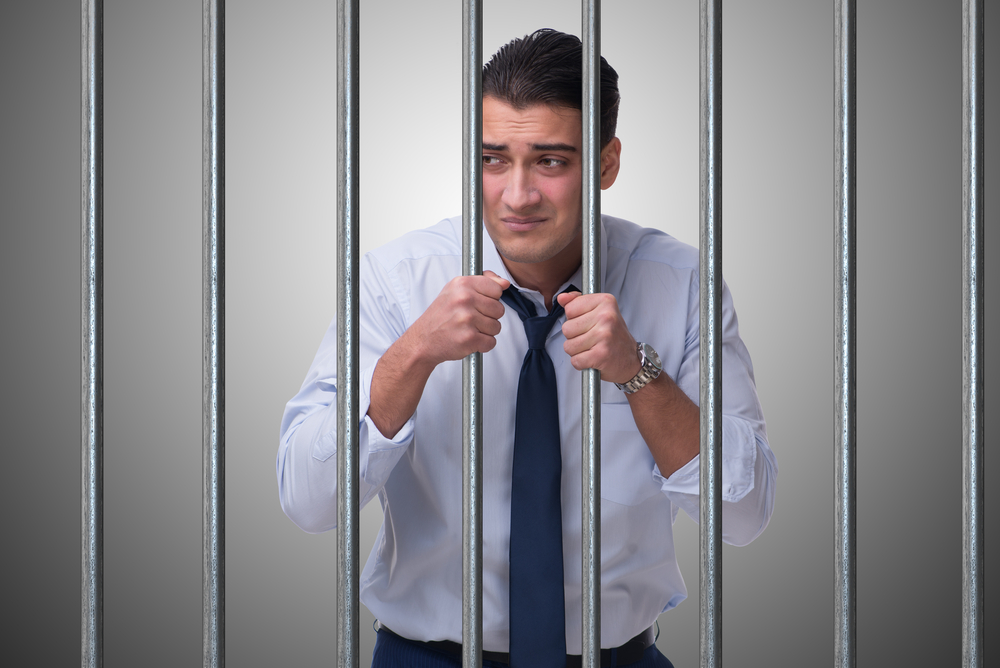When a loved one is incarcerated, the situation can feel overwhelming and unfamiliar. Navigating the complexities of the criminal justice system often raises questions, and understanding the rights of inmates is one of the most important steps toward providing support.
Knowing these rights empowers families and friends to advocate for their loved ones and ensures that the legal protections designed to uphold human dignity are respected. From ensuring access to necessities to safeguarding against mistreatment in county jails, understanding these rights is essential for holding institutions accountable and helping incarcerated individuals maintain their humanity.
Join us as we explore the key rights inmates are entitled to and why being informed is critical for anyone supporting someone behind bars.
Legal Rights in Texas County Jails
Inmates in the United States are entitled to specific legal rights that protect their dignity and ensure fair treatment within the justice system. Among the most critical rights are access to an appeals process, the opportunity for parole, and protection from discrimination based on race, sex, religion, or nationality. Understanding these rights can help families and friends advocate for their loved ones more effectively.
The Appeals and Parole Processes
The appeals process allows inmates to challenge their convictions or sentences if they believe a legal error occurred during their trial. This vital right provides a pathway for correcting wrongful convictions or overly harsh sentences. Appeals typically involve presenting the case to a higher court, which reviews the trial’s fairness and adherence to the law.
For inmates eligible for parole, the process offers a chance to transition back into society under supervision. Eligibility criteria often depend on the type of offense, time served, and behavior while incarcerated. The parole board plays a crucial role in this process, evaluating the inmate’s conduct, rehabilitation progress, and readiness for reintegration. To prepare for a parole hearing, inmates should focus on maintaining good behavior, completing rehabilitation programs, and presenting a clear plan for life after release, including employment and housing arrangements. Families can assist by providing emotional support and helping with reentry plans.
Protection from Discrimination
The justice system prohibits discrimination against inmates based on race, sex, religion, or nationality. This protection ensures that all individuals are treated fairly and have equal access to programs, services, and opportunities within the correctional system. For example, an inmate cannot be denied participation in a work program due to their race or denied access to religious practices because of their faith.
If discrimination or mistreatment occurs, inmates or their families can report the issue to prison officials, file grievances through the facility’s internal process, or escalate the matter to external agencies like the Department of Justice’s Civil Rights Division. Legal aid organizations also offer support in addressing such issues. Documenting incidents and maintaining detailed records is essential for pursuing these claims.
8th Amendment Protections Against Cruel and Unusual Punishment
The 8th Amendment guarantees protection from cruel and unusual punishment, a cornerstone of inmate rights. This includes safeguarding inmates from inhumane conditions, excessive use of force, or neglect. One well-known case is Brown v. Plata (2011), where the Supreme Court ruled that California’s overcrowded prisons violated inmates’ 8th Amendment rights due to inadequate medical care, leading to preventable deaths.
Understanding essential rights helps inmates and empowers their families to act as advocates, ensuring justice is upheld within the correctional system. By staying informed and proactive, loved ones can play a pivotal role in protecting and supporting those behind bars.
Basic Necessities for Inmates
Ensuring inmates have access to basic necessities is fundamental to upholding their rights and dignity. At the Collin County Jail in McKinney, Texas, provisions for meals and communication are structured to meet these essential needs.
Meals
Inmates at Collin County Jail receive three meals daily, adhering to the standard of providing three meals within a 24-hour period. While specific menus may vary, meals typically include a protein, starch, and sometimes a vegetable.
Communication
Maintaining communication with the outside world is crucial for inmates’ well-being and rehabilitation. Collin County Jail facilitates this through phone access and visitation.
Inmates can make prepaid calls by having funds placed on a specific phone number account through ICSolutions. Additionally, inmates can purchase phone time using their commissary accounts. It’s important to note that all calls are subject to monitoring and recording, except for privileged communications with attorneys.
Regarding visitation, Collin County Jail offers both on-site and remote video visitation options.
Visitors must arrive 20 minutes before the scheduled visitation time. Each visit lasts 25 minutes, with an additional five minutes allocated for walking to the visitation area. Inmates are allowed two weekly visits, with a maximum of two guests per session. A third guest is permitted if it is a child no older than six years. All visits must be scheduled at least 24 hours in advance.
Family and friends can conduct video visits from their personal devices by registering and scheduling through ICSolutions. This service allows for greater flexibility and convenience, especially for those unable to visit in person.
Inmate Medical Care and Health Rights
Inmates at the Collin County Jail in McKinney, Texas, have access to a range of medical services designed to address their health needs during incarceration.
The facility provides in-house medical care to inmates, ensuring timely attention to various health concerns. Medical exam rooms are located in the processing area, the infirmary, and each housing cluster, facilitating prompt medical evaluations and treatments.
Basic dental care, addressing essential dental health needs, is available to inmates within the facility, ensuring that they receive necessary dental attention during their incarceration.
While specific details about vision care services are not explicitly mentioned, correctional facilities typically offer basic vision assessments and provide necessary corrective measures, such as prescription glasses, to ensure inmates maintain adequate vision health.
Recognizing the importance of mental health, the Collin County Jail offers mental health services to inmates. The facility is equipped to provide mental health programming, including substance abuse and detox programs, to support inmates’ psychological well-being.
Additionally, the Collin County District Attorney’s Office has established a Mental Health Unit to identify defendants with suspected mental illnesses or intellectual disabilities, aiming to increase the effectiveness of the county’s Mental Health Managed Counsel Program.
Rights for Pregnant Inmates
Pregnant inmates are entitled to appropriate prenatal care to ensure the health and safety of both the mother and the unborn child. This includes regular medical check-ups, nutritional support, and necessary medical interventions during pregnancy. The facility’s medical services are equipped to provide such care, adhering to standards that protect the rights and health of pregnant inmates.
Overall, the Collin County Jail is committed to providing comprehensive medical services to its inmates, ensuring their health needs are met during their time in custody.
Inmate Rights Limitations and Security Protocols
While inmates retain fundamental rights, these rights are balanced against the need to maintain safety and order within correctional facilities. Among the most common limitations are mail inspections and cell searches, which are necessary to prevent contraband from entering the jail and to ensure a secure environment for both staff and inmates.
During mail inspections, officials inspect incoming and outgoing mail for restricted items like:
- Drugs (hidden in paper, envelopes, or stamps)
- Weapons or sharp objects
- Money
- Unauthorized electronics, like SIM cards or USB drives
- Explicit materials or content that could incite violence
Routine and unannounced cell searches are conducted to uncover prohibited items and ensure compliance with facility rules. Prison officials thoroughly examine the inmates’ personal belongings and living areas during these searches.
1st Call Bail Bonds in McKinney
If you or a loved one were recently arrested in McKinney, knowing your rights as an inmate can help you get through one of the most trying times of your life. No matter your reason for ending up behind bars, getting out and home quickly should be your priority.
At 1st Call Bail Bonds, our McKinney bail bond office is open 24/7 to help anyone with a bail amount get out of jail fast.
No matter the bail cost or time of day, we’re ready to help! Contact us today to start the application process.




